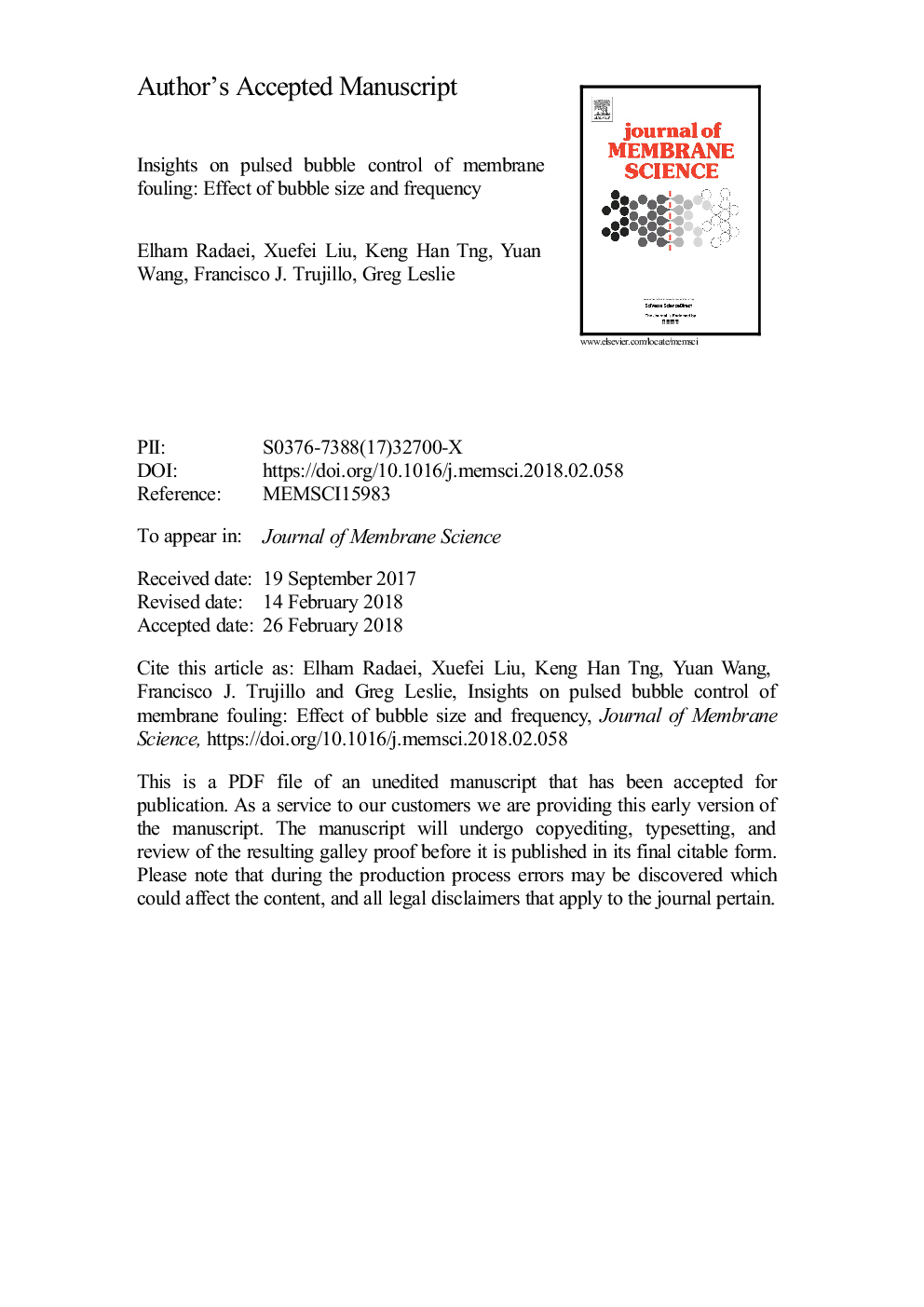ترجمه فارسی عنوان مقاله
بینش در کنترل حباب های پالس غلظت غشا: تاثیر اندازه حباب و فرکانس
عنوان انگلیسی
Insights on pulsed bubble control of membrane fouling: Effect of bubble size and frequency
| کد مقاله | سال انتشار | تعداد صفحات مقاله انگلیسی |
|---|---|---|
| 145489 | 2018 | 31 صفحه PDF |
منبع

Publisher : Elsevier - Science Direct (الزویر - ساینس دایرکت)
Journal : Journal of Membrane Science, Volume 554, 15 May 2018, Pages 59-70
ترجمه کلمات کلیدی
استرس برشی، حباب کروی حباب، جریان غیر نیوتنی، دینامیک سیالات محاسباتی، غشای فیبر توخالی غوطه ور شده،
کلمات کلیدی انگلیسی
Shear stress; Spherical cap bubble; Non-Newtonian flow; Computational fluid dynamics; Immersed hollow fibre membrane;

